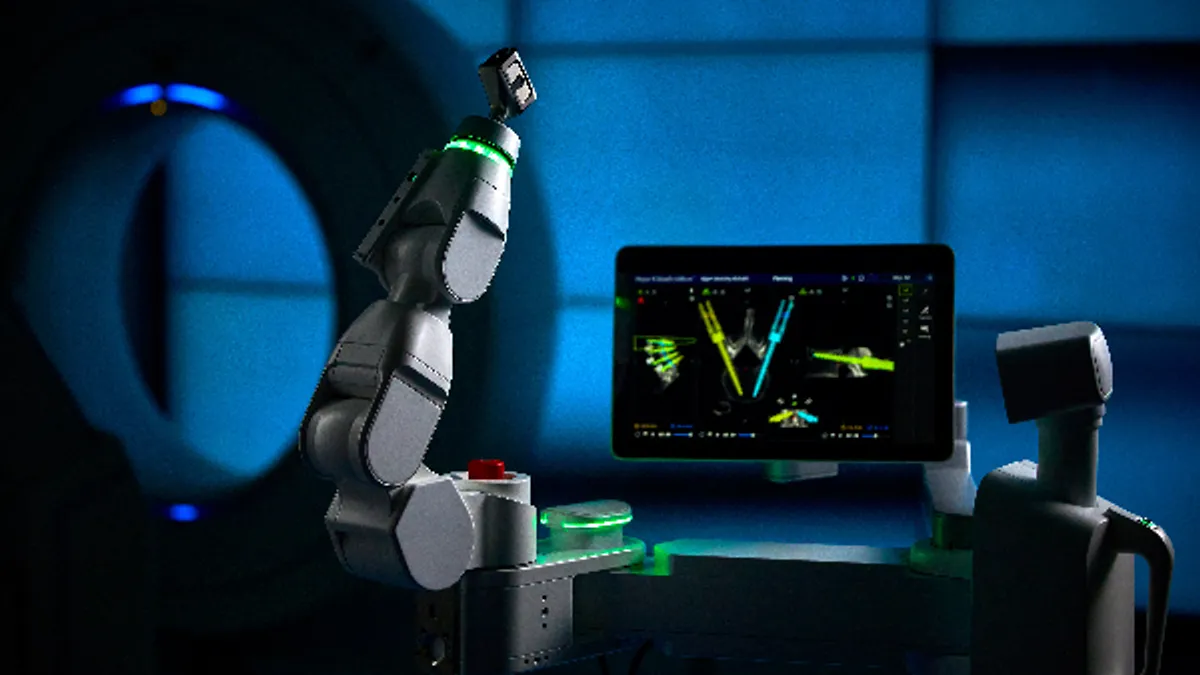Fiscal Q2 insights:
Medtronic CEO Geoff Martha said a slower-than-expected recovery in procedures and lingering supply challenges resulted in a drop in profit and revenue in the quarter.
Even as other medtech companies have reported a rebound in the number of procedures from lows at the worst of the COVID-19 pandemic, Martha said some markets have been slower to return to normal levels. Those include heart procedures, such as elective percutaneous coronary intervention and transcatheter aortic valve replacement, as well as some GI procedures and spinal cord stimulation.
While the company resolved some of its problems with packaging last quarter, the improvements happened later than expected, delaying momentum and affecting product availability, Martha said in an earnings call on Tuesday.
Medtronic’s cardiovascular revenue declined 2% from a year earlier, while medical surgical revenue decreased 10% and diabetes revenue fell 5%. Neuroscience revenue increased 2%, driven in part by growth in robotics and surgical navigation, as well as sales of ear, nose and throat products.
“These changes take time, and we’ve faced setbacks along the way that have slowed us down,” Martha said. “Some are environmental, like COVID recovery rates, raw material shortfalls, and Chinese procurement policy, while other setbacks are of our own doing, like our quality and operational challenges, and the pace of improvement we anticipated. I know we have more work to do here, but we understand the root causes that led to the years of underperformance from this company, and our aggressive transformation agenda is designed to fix these issues.”
The Minneapolis, Minn.-based company, the largest medtech company by revenue, is in the process of spinning out three of its businesses while cutting costs and making its operating units more nimble.
Diabetes warning letter:
Medtronic also said it has now fully complied with the commitments demanded in a warning letter received from the Food and Drug Administration in 2021. That followed an inspection of its diabetes facilities in Northridge, Calif., and recalls of its MiniMed 600 series insulin pumps and remote controllers for the MiniMed 508 and Paradigm pumps. Those concerns forced Medtronic to pause the U.S. debut of the MiniMed 780G insulin pump.
The company said on Tuesday it had informed the FDA that it’s ready for re-inspection. Medtronic is also in active review with the agency on its submission of the MiniMed 780G system paired with its Guardian 4 sensor.
“It's very hard to say the timing on that. I think that's up to the agency,” said Que Dallara, president of Medtronic’s diabetes operating unit.
In Europe, where the 780G has been approved since 2020, the device has been seeing double-digit growth, Dallara added.
Renal denervation:
Company leaders also discussed recent clinical trial results for Medtronic’s renal denervation device. While the study missed its primary endpoint of 24-hour ambulatory systolic blood pressure, it performed better than drugs alone at reducing patients’ blood pressure when measured at the doctor’s office.
“The totality of the data really is the strength of this program compared to just about any other new therapy I can think of,” said Sean Salmon, president of Medtronic’s cardiovascular portfolio. “There's really not a lot of comparisons for just how much good data we have here.”
It’s not yet clear for whom the device will be approved for or how payers will cover it. Salmon said the company did a patient preference study showing a “large majority” of them would prefer having a procedure versus adding even one more medication, which may be considered by insurers.
Forecast:
Medtronic lowered its profit and revenue forecast for its 2023 fiscal year, assuming that procedure volumes remain the same for the next two months. Foreign-exchange rates and China’s switch to volume-based procurement for medical devices also factored into the company’s expectations.
Medtronic now forecasts revenue growth of 3.5% to 4% on an organic basis in the second half of the fiscal year, compared to its previous estimate of growth in the high-single digits. That includes a $1.74 billion to $1.84 billion effect on revenue from foreign-exchange rates.
The company also lowered its earnings-per share-forecast to $5.25 to $5.30 compared with a previous range of $5.53 to $5.65.
J.P. Morgan analyst Robbie Marcus wrote in a research note on Tuesday that the quarterly results, lowered expectations and disappointing renal denervation data “continues to place doubt on the Medtronic growth story, and we believe investors will continue to take a more cautious stance here given slower growth into year-end in an already challenged macro-environment with few if any upside drivers.”
Medtronic’s shares fell 6.1% to $77.25 in mid-morning trading.



















